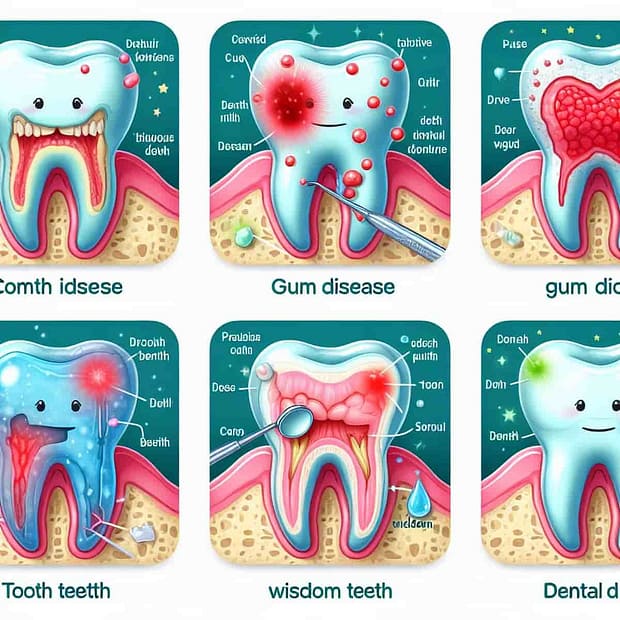Toothache can strike suddenly and disrupt daily activities, causing discomfort and distress. Understanding the causes, recognizing symptoms, and seeking effective relief are essential for managing toothache and restoring oral comfort. Let’s explore toothache in detail:
Key Takeaways:
- Toothache can result from various dental issues, including tooth decay, gum disease, dental abscess, and tooth fracture.
- Symptoms of toothache may include persistent or intermittent pain, sensitivity to temperature or pressure, swelling, and fever.
- Relief for toothache often involves addressing underlying causes and may include home remedies, over-the-counter pain relief, and professional dental treatment.
Causes of Toothache:
Toothache can have several underlying causes, including:
- Tooth Decay (Cavities): Decay erodes tooth enamel, exposing sensitive nerve endings and causing pain.
- Gum Disease (Gingivitis or Periodontitis): Infection and inflammation of the gums can lead to toothache.
- Dental Abscess: Pus-filled pockets caused by bacterial infection can develop at the root of the tooth or between the tooth and gum.
- Tooth Fracture: Cracks or fractures in the tooth can expose nerves and lead to pain.
- Dental Trauma: Injury to the tooth or surrounding structures can cause toothache.
- Bruxism (Teeth Grinding): Grinding or clenching teeth can cause tooth sensitivity and pain.
Symptoms of Toothache:
Symptoms of toothache may vary depending on the underlying cause but commonly include:
- Persistent or Intermittent Pain: Sharp, throbbing, or dull pain in or around the affected tooth.
- Sensitivity: Increased sensitivity to hot, cold, sweet, or acidic foods and beverages.
- Swelling: Swelling of the gums or face around the affected tooth.
- Fever: Fever may accompany toothache, especially in cases of infection.
- Difficulty Chewing: Discomfort or pain when biting down or chewing.
Relief for Toothache:
Relief for toothache often involves addressing underlying causes and may include:
- Home Remedies: Rinse mouth with warm saltwater, apply a cold compress to the cheek, or use over-the-counter pain relievers such as ibuprofen or acetaminophen.
- Avoid Trigger Foods: Avoid hot, cold, sweet, or acidic foods and beverages that may exacerbate tooth sensitivity.
- Soft Diet: Eat soft, easy-to-chew foods to minimize discomfort while waiting for treatment.
- Professional Dental Treatment: Seek prompt dental care to address underlying dental issues causing toothache. Treatment may include dental fillings, root canal therapy, gum disease treatment, or tooth extraction, depending on the cause and severity of the toothache.
Prevention of Toothache:
Preventing toothache involves maintaining good oral hygiene habits and seeking regular dental check-ups:
- Brush and Floss Regularly: Clean teeth twice daily with fluoride toothpaste and floss daily to remove plaque and prevent decay.
- Limit Sugary and Acidic Foods: Reduce consumption of sugary and acidic foods and drinks that contribute to tooth decay and gum disease.
- Visit Your Dentist: Schedule dental exams every six months for professional cleanings and oral health evaluations to detect and address dental issues early.
In conclusion, toothache can be a sign of underlying dental problems and should not be ignored. By understanding the causes, recognizing symptoms, and seeking timely relief and treatment, you can alleviate discomfort and maintain optimal oral health. Remember, prevention is key, so prioritize good oral hygiene habits and regular dental check-ups to prevent toothache and other dental issues. If you experience persistent or severe toothache, don’t hesitate to consult your dentist for proper diagnosis and treatment.













